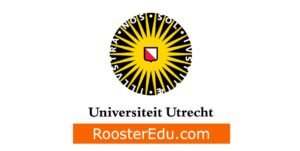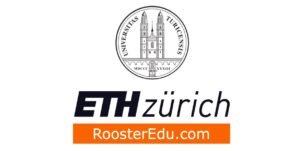Are you a Master’s graduate looking for fully funded PhD opportunities? Explore the range of funded PhD programs available at the Max Planck Society, Munich, Germany. Apply online now and kickstart your doctoral journey!
1. Fully Funded PhD Position in chimpanzees project
Summary of PhD Program:
The aim of this PhD project is to test whether chimpanzees have the capability and motivation to develop cumulative cultures – the process in which cultural innovations incrementally shape cultural expressions such that they become better suited for their envisioned purpose. You will study chimpanzees’ potential to create and maintain cumulatively established cultures by means of targeted experimental assays. Moreover, you will investigate whether chimpanzees’ social network properties are predictive of their potential to develop cumulative cultures with behavioural observations and network analyses.
Application Deadline: August 15th, 2024
2. Fully Funded PhD Position in Organizing Architectures
Summary of PhD Program:
The DFG Research Training Group “Organising Architectures” (3022), which consists of 12 doctoral student positions and in which the Goethe University Frankfurt/Main, the Technical University of Darmstadt, the University of Kassel and our institute are involved, focuses on architecture as the organized, collective shaping of modern societies through institutions, networks and discourses. This focus is based on the assumption that observation of social orders cannot be separated from architectural formations and that these, like the respective architectures, arise through specific, complex social negotiation processes.
Application Deadline: 28 July 2024
Follow us for regular updates
3. Fully Funded PhD Position in solar batteries and optoionics
Summary of PhD Program:
The SOLBAT initiative is funded by the Max Planck Foundation and poised to deliver pioneering work in the field of solar batteries and optoionics during the next five years. Research will focus on the emerging intersection of photo(electro)chemistry and solid state ionics and aim at the development of novel light storing devices and optoionic technologies, including various light-enhanced battery concepts, time-delayed (“dark”) photo(electro)catalysis, and light-assisted memory devices. The projects will be carried out in close collaboration with the Theory Department (head: Karsten Reuter) at the Fritz Haber Institute (FHI) and have a strong focus on AI-based evaluation methods and robotic material design for the next generation of optoionic materials.
Application Deadline: Open Until Filled
4. 02 Fully Funded PhD Position in Plasma-Spin-Energy
Summary of PhD Program:
The tasks, depending on your experience, include experimental work on the formation of atomic layers of spintronic materials using novel plasma deposition technologies, and the fabrication of nanoscale spintronic devices using advanced plasma etching technologies. Further studies of their properties for applications in energy-efficient memory and computing, as well as theoretical studies of the dynamics of non-collinear, chiral magnetic textures (e.g. chiral domain walls, skyrmions) are anticipated.
Application Deadline: Open Until Filled
5. Fully Funded PhD Position in Social effects on animal microbiomes
Summary of PhD Program:
Recent research suggests another possible benefit: that social animals acquire some of their microbiome from their conspecifics. If this is true, then social partners may act as ‘reservoirs’ of beneficial microbes for individuals with newly developing or recently disrupted microbiomes. However, it is crucial to disentangle social microbiome transmission from other factors that affect the microbiome, such as diet, age, and landscape use, to evaluate this hypothesis. The Social Microbiome Group aims to understand how social living influences animal microbiomes, and in turn how microbes have shaped the costs and benefits of social evolution.
Application Deadline: September 1, 2024
6. Fully Funded PhD Position in Primate microbiomes
Summary of PhD Program:
Animals are exposed to thousands of different bacterial species on a daily basis, yet form stable associations with only a small subset of them. These partnerships have persisted over evolutionary timescales and shape the development, immunity, and lifetime fitness of their hosts. In the Social Microbiome Group (part of the Department of Primate Behavior and Evolution at the Max Planck Institute for Evolutionary Anthropology), we study the gut microbiomes of non-human primates in order to understand the processes governing microbiome transmission, assembly, stability, and evolution in wild populations.
Application Deadline: September 1, 2024
Looking for more Funded Phd Position
7. 04 Fully Funded PhD Position in Law & Anthropology
Summary of PhD Program:
The definition of religion as a grounds of persecution has not been a significantly disputed in the UK asylum case law, probably because of a traditional approach to the concept which tends to include only familiar belief systems. More recently, the focus has been on the following issues: expectations that asylum seekers will exercise self-restraint; the permissible level of government control; the content of the freedom of religion; the requirement to prove the authenticity of on e’s belief, especially in cases of faith conversion; which religious practices should be protected from state interference; and whether individuals should practise their religion privately or should have the right to practise openly or even proselytise (although not an absolute right).
Application Deadline: 1 August 2024
8. Fully Funded PhD Position
Summary of PhD Program:
International Max Planck Research School for Global Biogeochemical Cycles (IMPRS-gBGC) in cooperation with the Friedrich Schiller University Jena, the Max Planck Institute for Biogeochemistry houses a unique and flexible research program that grants German and foreign students a broad selection of learning opportunities while still maintaining a research focus. The IMPRS-gBGC offers a PhD program specializing in global biogeochemistry and related Earth system sciences.
Application Deadline: July 28th, 2024
9. Fully Funded PhD Position in Partners in Crime: Understanding Peer Offending through Virtual Reality
Summary of PhD Program:
The influence of peers is one of the most important drivers of juvenile delinquency. Several decades of research have taught us that having delinquent friends increases the risk of becoming delinquent oneself and that spending time with delinquent peers increases the likelihood of committing crimes of one’s own. These findings hold true across cultures, contexts, and research methods. However, prior research has principally relied on introspective and retrospective research methods, such as surveys, interviews, and panel studies. Exactly how peers influence each other, i.e., what happens at the moment of decision-making, is less well understood.
Application Deadline: 15 July, 2024
10. Fully Funded PhD Position in Developing and Testing Crime Reduction Interventions in Public Space using Virtual Reality
Summary of PhD Program:
The MAXLab Virtual Twin Program seeks to address this gap by using virtual reality (VR) to test the effect of interventions in preventing crime and/or increasing public safety. For this purpose, VR replicas of street segments, squares, or other public spaces, i.e., “virtual twins” of the city of Freiburg (and potentially other cities), will be developed and experimentally manipulated. This approach enables the creation of realistic and ecologically valid versions of these areas while maintaining researcher control. Additionally, in a departure from conventional field experiments, VR experiments provide access to the research population and can hence tap into individuals’ motivations, emotions, and cognitions.
Application Deadline: 15 July, 2024
11. Fully Funded PhD Position in Microtubule Nanomechanics and Turnover under Cell-like Physical Constraints
Summary of PhD Program:
The Department of Theoretical and Computational Biophysics (Prof. Dr. Helmut Grubmüller) is inviting applications for a PhD Student (f/m/d) for the project “Microtubule nanomechanics and turnover under cell-like physical constraints” supervised by Dr. Maxim Igaev. The PhD project involves massively parallel, atomistic and coarse-grained modeling to study the dynamic and mechanic properties of microtubule filaments subject to external forces by space constraints or other cellular factors.
Application Deadline: Open Until Filled
12. Fully Funded PhD Position
Summary of PhD Program:
The Research Group “Artificial Justice” applies interdisciplinary methods to the study of automated, artificial, and algorithmic reasoning in law. Group members research a wide array of topics ranging from pre-modern fantasies of “justice machines,” the transition from legal logic to legal information science, cultural attitudes towards courtroom tech, and the emerging “right to a human decision” to contemporary proposals for AI-powered “lawbots.” Collaboratively, Group members explore a set of more general issues, including the relationship between normative and empirical expertise, law’s epistemological status vis-à-vis technology and the natural sciences as well as limits and opportunities of legal interdisciplinarity.
Application Deadline: 15 July 2024
13. Fully Funded PhD Position in Statistical primate demography
Summary of PhD Program:
The work will focus on development and application of state-of-the-art inference models for primate demography under the supervision of Dr. Fernando Colchero and in collaboration with the Department’s Director, Prof. Jenny Tung. The overarching goal of this work is to understand the influence of social and environmental factors on male and female fertility and survival, as well as sex-differences in actuarial and reproductive aging in primates.
Application Deadline: July 15, 2024



